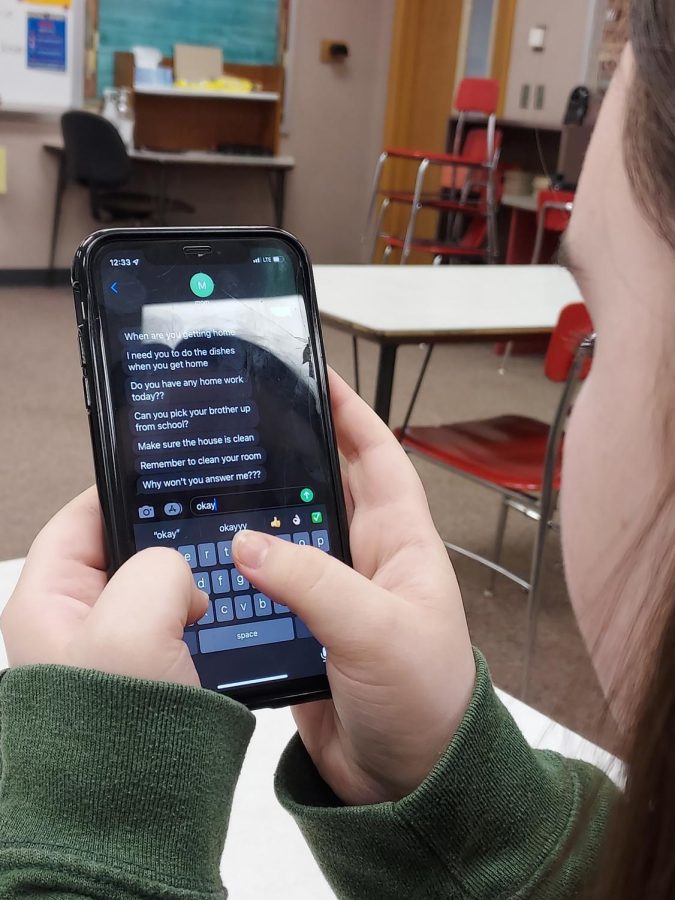Please, Mom and Dad, Stop Texting!
May 4, 2022
- MOM: Pick up the phone!
- CHILD: I’m at school! I can’t!
Texts are a part of everyone’s daily life in the 21st century. People text 24/7 about anything and everything. But, for teens, putting the phone away for a while is a “must do” when at school. However, what are teens expected to do when their parents keep texting?
Many students have had their parents text them on occasion while at school–whether it be a small text to say I love you or just to ask a simple question. But, some kids have found that their parents text them continuously throughout the day–every day! Maiya Kyle, a sophomore at Elkhart High School, recalls her experiences with it. “My mom likes to text me several times throughout the day while I’m at school.” As a result, she is torn between responding to a parent–not knowing whether it is an emergency–and paying attention to her schoolwork.
Sometimes these issues can go even further than just an annoying nagging in a student’s back pocket. Frequently, students at Elkhart High have gotten in trouble by their teachers from their parents’ constant messages. “There have been times in band class I’ve gotten my phone taken away,” Kaela White states. “Embarrassing ringtones are fun,” but a dead give-away, she jokes.
Though students feel embarrassed and annoyed when their parents text and call them at school, it may not be all their fault. Some parents can be misinformed when it comes to cell phone use in the classroom. “People their age didn’t grow up with phones,” White explains. “They didn’t have the problem of parents calling and texting them all the time.” However, they need to realize that it is not in their child’s best interest to interrupt their learning or a teacher’s classroom.
Many people question why students can’t just ignore their parents’ messages, but it’s really not that easy. Both Kyle and White have had instances where they had gotten in trouble for not answering their parents’ messages. Putting time aside for students to have a talk with their parents or guardians about this common disturbance might inform them on things they hadn’t known before.
As society moves forward in the future, it’s almost inevitable that this problem will continue, but there’s no reason that it couldn’t improve. Using this as a learning experience for both students and parents may be very beneficial and quite possibly needed in today’s world.








